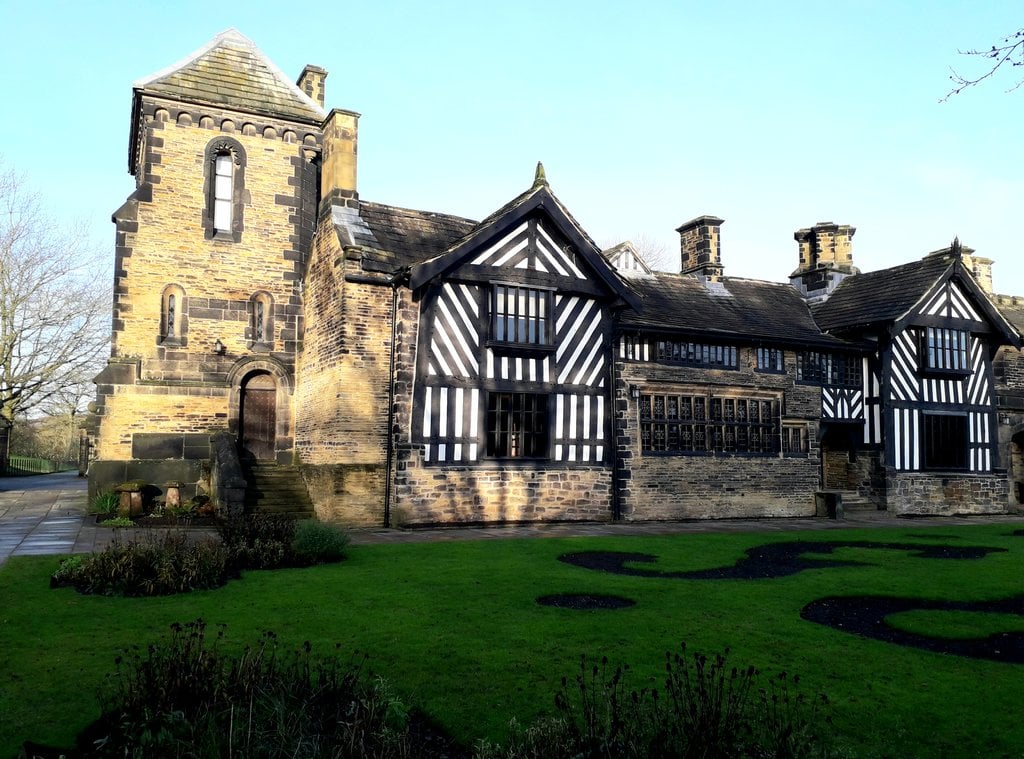“I dare to say I am like no one in the whole world”- on Anne Lister and ‘Gentleman Jack’
May 17, 2020

Credit: Jamie Ashton
Shibden Hall has stood proudly on the outskirts of Halifax in the Shibden Valley for over 500 years. Its Gothic tower and Tudor façade appear to rise up and dominate the valley; it looks, perhaps, quite masculine.
Women and business in the early 19th century don’t necessarily spring to mind when one marvels at the impressive structure – yet writer, intellectual, heiress, businesswoman, and member of the landed elite, Anne Lister, lived here and has been propelled into the spotlight following the success of the BBC series, ‘Gentleman Jack’. How real is this view of Mrs Lister? Feminist, businesswoman, domineering, the first ‘modern’ lesbian? These aren’t typical Victorian tropes, but for the politics and society of Halifax, on the doorstep of Leeds, she is an intriguing yet complex figure.
On Wednesday 20th August 1823, Anne quotes Rousseau: “I know my own heart … But I am made unlike anyone I have ever met. I dare to say I am like no one in the whole world.” Anne is an interesting and beguiling woman; born in 1791, and inheriting Shibden in 1826, she is wrought with contradiction and paradox. Jill Liddington, in her book ‘Female Fortune’, highlights the dichotomy which enveloped Anne’s existence, combining “a life of personal dissidence with the profoundly conservative views of other local traditionalist Tory landowners.”
Anne was born at a time of tumultuous social change, in an era of revolutionary ideology and radical ideals, but she embodied the traditionalist landowner, lamenting the Reform Bill of 1832, which extended suffrage to those who didn’t own property. At the heart of the Industrial Revolution, Anne used her power as a landowner to ‘doorstep’ tenants, threatening eviction if they didn’t support the Tories, bearing in mind the absence of the secret ballot. Is it anachronistic to call Anne modern; does she simply represent the zeitgeist of the period?
In 1790, Mary Wollstonecraft published ‘A Vindication of the Rights of Men’, offering a scathing view of the social code and etiquette women were expected to follow, with sensibility entrenching “littleness and weakness” as “the very essence of beauty”. Wollstonecraft goes on to remark how there was little choice for women, but to accept “family convenience, or else marry”, and, to borrow the words of Jane Austen, “nothing is in question but the desire to be well married.” This has been described by Graham Barker-Bennet as a “culture of sensibility”; but Anne Lister was the complete antithesis of this. Anne was self-educated, as well as a traveller, businesswoman, and landowner, who, on 29th January 1821, wrote: “I love and only love the fairer sex … my heart revolts from any other love than theirs.” Of course, this ‘culture of sensibility’ didn’t have a word for lesbian, but there is little mistaking Anne’s sexuality.
She documents her life thoroughly in her journals, which are now part of the UNESCO Memory of the World Register, being one of the longest social commentaries in history. With 26 volumes and estimated to contain over 4 million words, its historical importance to an under-represented period of LGBT history is indisputable. Anne’s diary is comprised of short-hand documentation, kept in thorough detail, as well as one sixth being in her ‘crypt-hand’ – documenting her intimate relationships with women, often explicit in nature. The diaries present information on almost every aspect of early 19th century life in England – starting in 1806, and ceasing in 1840, they track the social and political aspects of her life, as well as presenting an emotionally honest account of lesbian life.

Credit: Jamie Ashton
Anne’s complex character features as the enthralling centrepiece to the BBC drama, ‘Gentleman Jack’ – set between 1832 and 1834, and, based on her diaries, it tracks her life as she returns to Halifax following the breakdown of her relationship with Vere Hobart. Sally Wainwright’s script follows the developing romance between Anne Lister and Ann Walker, as well as Anne’s attempts to develop the Shibden estate, and her foray into the industrialising Halifax. The drama, filmed predominantly at Shibden Hall, presents a complex and intriguing view of Mrs Lister – yet, as the academic Jill Liddington notes, there are numerous dramatizations and examples of artistic licence. With the programme having won at the Royal Television Society Awards for Best Drama Series, and with the commission of a second series, it is crucial to consider the legacy of Anne Lister, and whether she is, as Rebecca Woods states, the “first modern lesbian.”
The series in and of itself deserves credit for shining a light on a legacy largely unknown in Halifax and beyond, presenting an Anne Lister of strength and determination characterised in the diaries, and brought stunningly to life by Suranne Jones. To call Anne a lesbian is anachronistic, but her relationship to her sexuality is undeniably modern, even by contemporary standards, having embraced her “own heart” – and what she calls her “oddity”. Anne certainly does not embody the ‘culture of sensibility’ – from climbing mountains in the Pyrenees, to running her own estate and business, she is nuanced with modernism. Yet, Anne is a complex figure. She was not a feminist, and, as a traditionalist, she did not view universal suffrage favourably, calling it an “absurdity” because, for her, only those who possessed property as the landed elite should have been able to vote. It is also crucial to note that some of Anne’s sexual encounters, as Rebecca Woods argues, can seem to have been somewhat “predatory” and domineering, which does indeed come across at times in the drama.
The series has received critical acclaim, and has galvanised a fan base, and, going on into the second series, one could certainly wonder what Sally Wainwright will choose to portray. Some may be surprised that, despite a depiction of happiness and tranquillity between Anne and Ann in the first series, theirs was not in fact a happy union. After their communion together at York Trinity Church, the relationship had numerous points of friction and conflict. It wall be interesting to see how this plays out against the backdrop of travel, business, and Anne’s continued pursuit of social mobility.
Anne Lister was a woman of intrinsic interest who, as Jill Liddington states, proved that, although lesbianism at the time was little contemplated, “the unspoken was not the unknown.” Despite her contradictions and, in fact, most definitely because of them, Anne Lister was a fascinating woman who lived contrary to societal expectations, and the BBC series, although at times dramatized, demonstrates the remarkable life of Anne and her modern facets therefore giving new empowering life to the derogatory slur ‘Gentleman Jack’.
Jamie Ashton is a History student at the University of Leeds. His particular interest is in Georgian and Victorian History in Britain with a focus on the story of Anne Lister and her life in Halifax. He runs an arts and culture Instagram page called books.beverages, highlighting his research, and continued fascination with the world of tea and coffee.
Filed under: Film, TV & Tech
Tagged with: anne lister, BBC, diary, drama, gentleman jack, history, Industrial Revolution, LGBT, modern, series, shibden hall, TV



Comments